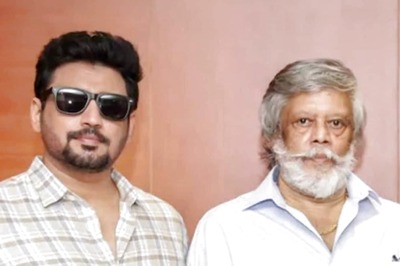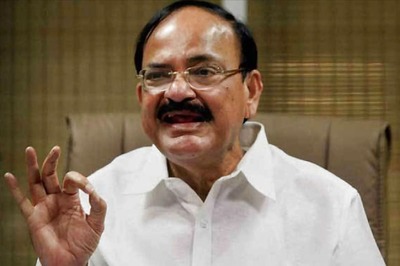
views
New Delhi: A document prepared by the Jal Shakti ministry has revealed that households in West Bengal, Meghalaya and Bihar have the least access to piped water supply.
The document, currently being presented to state water ministers, elaborates that the states have just one per cent households with piped water supply. A total of nine states have less than five per cent access and 13 states fall under the 10 per cent category. The document also lists seven states with more than 50 per cent supply. Meghalaya has the highest supply of piped water to households with 99 per cent connections.
The data comes at a time when most parts of the country are reeling under drought conditions with advisories sent to six states last month.
In order to deal with the impending crisis, the ministry has devised a new scheme named “Nal se Jal” (water from the tap) for each house in the villages in the next five years as promised in BJP’s election manifesto.
Officials informed that the rollout of the scheme will involve recharging groundwater through point recharge sources, basic treatment and re-use of grey-water for agriculture, de-silting minor irrigation tanks and rejuvenation of water bodies.
“There will be a huge focus on the campaign for creating awareness and behaviour change for the conservation of water,” P Iyer, secretary, drinking water and sanitation, said last week.
As part of its immediate measures, the Narendra Modi government has decided to conduct third-party evaluations to provide central funds to the states that need water the most.
Sources in the ministry of Jal Shakti said there are four states on which deliberations are ongoing. “Tamil Nadu, Rajasthan, Uttar Pradesh and Chhattisgarh may get funds. However, the final names will only be out after the third-party report,” said an official in the ministry, requesting anonymity.
Officials in the ministry also informed that Prime Minister Narendra Modi has given a deadline of two years to Uttar Pradesh Chief Minister Yogi Adityanath and Union Jal Shakti Minister Gajendra Singh Shekhawat in order to solve issues related to water supply in the state.
For the same purpose, the Centre is likely to provide of Rs 9,000 crore to Uttar Pradesh, which includes water-starved regions of Vindhyachal and Bundelkhand.
Tamil Nadu, on the other hand, has sought Rs 5,398-crore assistance from the Centre for water supply projects across the state in the backdrop of severe water shortage, especially in Chennai. The Centre has also been working to include water in the concurrent list.
The Ashok Chawla committee, which was primarily concerned with the question of rationalising the allocation of natural resources with a view to reducing the scope of corruption, was reported by the media to have recommended inter alia the shifting of water to the Concurrent List.
The general impression is that in India, water is a state subject, which is why it is mostly the state government that is held responsible for any water-related trouble. The position, however, is not so simple.
The primary entry in the Constitution related to water is Entry 17 in the State List, but it is explicitly made subject to the provisions of Entry 56 in the Union List, which enables the Union to deal with inter-state rivers if Parliament legislates for the purpose.
This means that if Parliament considers it “expedient in public interest” that the “regulation and development” of an inter-state river, say the Ganga or Yamuna or Narmada, should be “under the control of the Union”, it can enact a law to that effect, and that law will give the Union legislative (and therefore executive) powers over that river. That enabling provision has not been used by Parliament. No law has been passed bringing any river under the control of the Union.



















Comments
0 comment